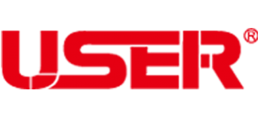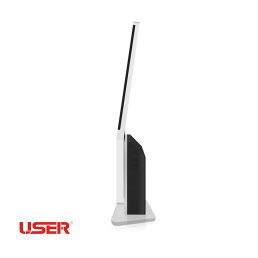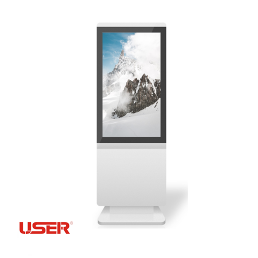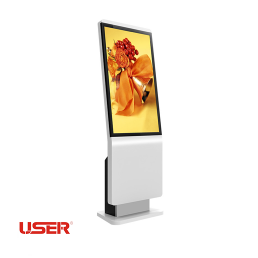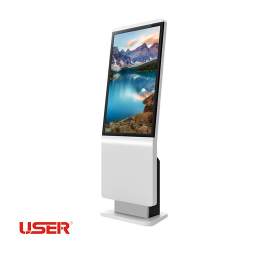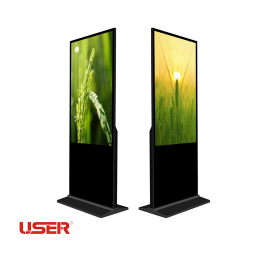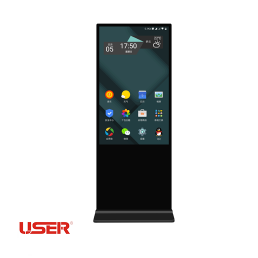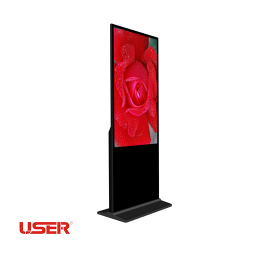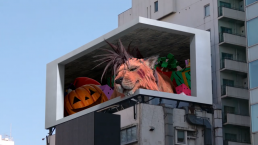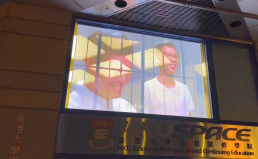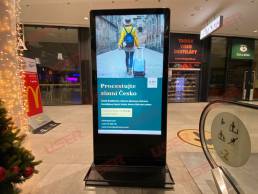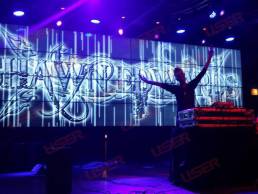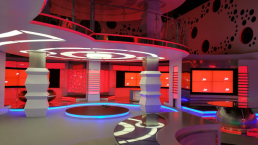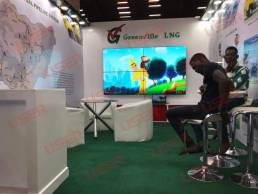
Infrared & Capacitive Touch

Wide-View Angle

Windows Ready

Centralized Terminal

Android Ready

24/7 Usage

Landscape & Portrait

IPS panel
What is User Floor Standing Touch Kiosk?
Floor Standing Touch Kiosks are a kind of Digital Signage that users and audiences can easily interact with it via touch, emotion or voice. Floor standing touch kiosks are used to transfer and announce visual information of products, services and much more information to the public. Display system utilized in this interactive computer kiosk uses LCD, LED or projection screen to illustrate visual graphical content .
Applications of floor standing smart kiosk are a lot to count, it can be used in any public arena for various purposes. These devices can be found anywhere. Touch screen display whiteboards in conference rooms and classes, floor standing Interactive touch kiosks walls in museums, exhibitions, shopping malls, self-ordering touchscreen kiosk in hotels, restaurants, cafes, these are just some quite common usages of this device.
Floor Standing Touch Kiosk Usages

Education
at schools, colleges and universities

Catalogue
at exhibitions and company offices

Check-in
At schools, colleges and universities

Order
Items in store or restaurant meals

Schedule
At schools, colleges and universities

Purchase Tickets
for public transportation, cinema and etc.
To know more about this product, you should definitely check “Top benefits of smart touch kiosk digital signage” guide. In addition, explore through some of the features of “Floor Standing Smart Touch Kiosk”:
✓ High-quality Screen
User provides the floor standing touch smart kiosk with a high-quality screen which utilizes explosion-proof glass. To explore the details, the screen is anti-violent, scratch-resistant, dust-proof and waterproof that helps you maintain in better. Besides, Industrial high-performance screen ensures high image clarity, high brightness and stability of use. It can also be upgrade from 1080P to 2K or 4K .
 ✓ Operating system (OS):
✓ Operating system (OS):
User interactive smart digital signage series come with customized operating system that will put your hands to choose your preferred OS among Windows, Android, Linux or even standalone OS . In this way, you will supply pleasant user experience for your customers based on their interest.
✓ Screen Size
You should always choose an appropriate touch screen size considering your environment, device application, user experience. Luckily, USER Display Solution has designed smart touch kiosk in various model and sizes to provide your needs. Among all sizes the most common ones are 32, 43, 49 and 55 inches.
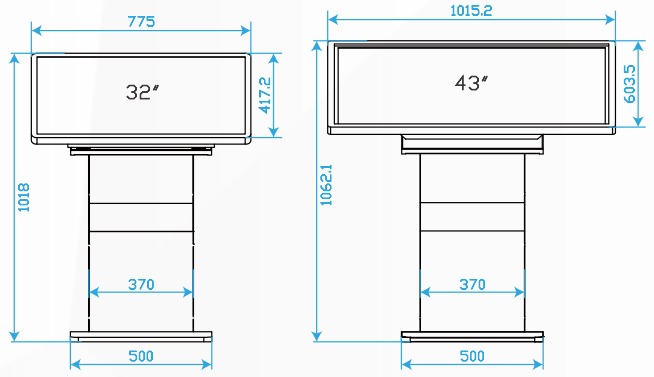
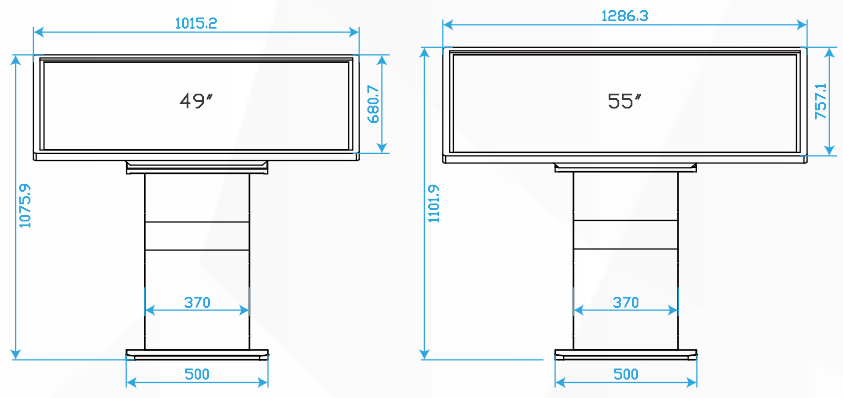
✓ Kiosk Shell
The shell is made of high-strength steel, which is ultra-thin, beautiful and strong, and has excellent protection performance. The material and design of shell is one the significant which provides possibility of using in both indoor and outdoor conditions.
✓ Multiple Configuration
You can easily choose among basic level, middle level and top level. Different levels are various in processor from Dual-Core to Dual-Core. Its OS version is available Android 4.1 to Android 7.1 .Moreover we let you to choose your favorite OS between Android, Windows, Linux or standalone OS.
✓ Automatic Switch Machine
If you are a busy person who forgets to turn off your floor standing Interactive kiosk digital signage at night, this feature can save you from paying high-price electricity bill. Automatic switch machine will get an administrator schedule and act exactly based on your set time.
✓ 24/7 Usage
As one the important features of floor stand interactive touch kiosk is to be able to work continuously for long hours and days. User Company digital signage kiosk devices are built for 24/7 commercial use of uninterrupted work with the stable performance.
✓ Wide-Viewing Angle
Unlike a conventional display surface which it’s not possible to view the monitor at 178 degrees (side to side). User interactive smart kiosk let you have this wide viewing angle keeping display brightness and contrast.
✓ Eco-Friendly Power Timer
The Eco-friendly power timer lets you assign hourly, daily or weekly on and off times for screen. By this feature, the power is consumed as it is needed. Moreover it is be really effective in energy consumption.
✓ IPS Commercial Grade Panel
IPS (In-plane switching) is a screen technology for LCD monitors. This was designed to solve the unignorable limitations such as strong viewing angle dependence and low-quality color reproduction.
✓ Storage
Due to increasing size of high-quality media files, User supplies it with high-capacity via internal and external storage. In addition to internal storage varying from 512MB to 2GB, an external storage could be inserted via USB, HDD and SSD. In this way, you will never have any shortage.
✓ Centralized Terminal Management
A cloud-based system that provides real-time control and insights of smart interactive kiosk, enabling operators to remotely manage content, display schedule and other functions.
✓ Multiple Inputs
Powerful interface supporting a wide range of audio and video inputs like SD card and USB Flash and outputs such as HDMI/VGA/DVI/USB. The USER manufacturer has considered fast dynamic picture without any delay or even frame loss to enhance the UX (user experience).
✓ Lifetime Technical Support
This is also a crucial support department in User Company. Counting over twenty technician and engineers to help service any issues that might occur during the life cycle of your displays. Our current final failure rate is below 1.7%. We strive on a daily basis to keep lowering these statistics. Our weekly meetings between our after sales and QC teams truly help us achieve these hard set goals.
✓ 3 Years Warranty
User Company has 3 years of warranty for all the products in there will be a technical issue in your display systems. Usersdt Warranty covers the defects resulting from defective parts, materials or manufacturing. The device is considered defective if it fails to perform the functions as indicated in the operation manuals, technical specifications or any other similar documents supplied with the equipment, and the failure is due to internal device characteristics.
<strong>Specifications</strong>
<table width=”806″>
<tbody>
<tr>
<td width=”170″>Model</td>
<td colspan=”2″ width=”636″>46”、49”、55” DID LCD Panel</td>
</tr>
<tr>
<td width=”170″> Bezel</td>
<td colspan=”2″ width=”636″>1.8mm</td>
</tr>
<tr>
<td rowspan=”7″ width=”170″>LCD Panel</td>
<td width=”189″>Max Resolution Support</td>
<td width=”447″>1920×1080(H×V)</td>
</tr>
<tr>
<td width=”189″>Pixel Pitch</td>
<td width=”447″>0.53025(H)×0.53025 (V)</td>
</tr>
<tr>
<td width=”189″>Brightness (nits)</td>
<td width=”447″>500 (cd/ m )</td>
</tr>
<tr>
<td width=”189″>Contrast</td>
<td width=”447″>4000:1</td>
</tr>
<tr>
<td width=”189″>Response Time</td>
<td width=”447″>8ms</td>
</tr>
<tr>
<td width=”189″>Color</td>
<td width=”447″>16.7M</td>
</tr>
<tr>
<td width=”189″>Visual Angle (H/V)</td>
<td width=”447″>178°(H) / 178°(V)</td>
</tr>
<tr>
<td rowspan=”5″ width=”170″>Image</td>
<td width=”189″>Contrast</td>
<td width=”447″>16 : 9</td>
</tr>
<tr>
<td width=”189″>Picture quality compensation</td>
<td width=”447″>LTI、CTI</td>
</tr>
<tr>
<td width=”189″>Motion compensation</td>
<td width=”447″>AUTO MOVE</td>
</tr>
<tr>
<td width=”189″>Filter</td>
<td width=”447″>3D comb filtering,digital noise reduction</td>
</tr>
<tr>
<td width=”189″>Video format</td>
<td width=”447″>PAL、NTSC</td>
</tr>
<tr>
<td width=”170″>Video Wall Controller
(Built-in each Screen)</td>
<td width=”189″>Computer centralized control interface</td>
<td width=”447″>RS232</td>
</tr>
<tr>
<td rowspan=”4″ width=”170″>Structure</td>
<td width=”189″>Border dimension</td>
<td width=”447″>1.8mm</td>
</tr>
<tr>
<td width=”189″>Net weight</td>
<td width=”447″>25kg</td>
</tr>
<tr>
<td width=”189″>Shell material</td>
<td width=”447″>Metal shell, anti-static,anti-magnetic,anti-strong electric field interference</td>
</tr>
<tr>
<td width=”189″>Installation way</td>
<td width=”447″>Wall mount,floor standing mount,hanging mount</td>
</tr>
</tbody>
</table>
<strong>Configuration options</strong>
<table width=”806″>
<tbody>
<tr>
<td width=”170″>Option 1</td>
<td colspan=”3″ width=”636″>Full HD 2K</td>
</tr>
<tr>
<td rowspan=”7″ width=”170″>Signal source</td>
<td width=”189″>Composite Video Input/(AV)</td>
<td colspan=”2″ width=”447″>CVBS(BNC) ×1</td>
</tr>
<tr>
<td width=”189″>Digital signal input</td>
<td colspan=”2″ width=”447″>HDMI×1; 1920×1080@60Hz backward compatible</td>
</tr>
<tr>
<td width=”189″>Computer signal input</td>
<td colspan=”2″ width=”447″>VGA(DB-15) ×1;1920×1080@60Hz backward compatible</td>
</tr>
<tr>
<td width=”189″>Digital signal input</td>
<td colspan=”2″ width=”447″>DVI(DVI-I)×1;1080P(1920×1080) backward compatible</td>
</tr>
<tr>
<td width=”189″>Composite Video Input/(AV)</td>
<td colspan=”2″ width=”447″>CVBS(BNC)x1</td>
</tr>
<tr>
<td width=”189″>RS232</td>
<td colspan=”2″ width=”447″>3</td>
</tr>
<tr>
<td width=”189″>USB</td>
<td colspan=”2″ width=”447″>1</td>
</tr>
<tr>
<td width=”170″>Option 2</td>
<td colspan=”3″ width=”636″>DP Looping 4K</td>
</tr>
<tr>
<td rowspan=”10″ width=”170″>Signal source</td>
<td width=”189″>Display Port(DP)</td>
<td colspan=”2″ width=”447″>3840×2160@30Hz、3840×2160@20Hz、3840×2160@25Hz</td>
</tr>
<tr>
<td width=”189″>HDMI</td>
<td colspan=”2″ width=”447″>480p、576p、720p、1080i、1080p、2160p</td>
</tr>
<tr>
<td width=”189″>DVI</td>
<td colspan=”2″ width=”447″>480p、576p、720p、1080i、1080p</td>
</tr>
<tr>
<td rowspan=”5″ width=”189″>Input port
</td>
<td width=”144″>Display Port</td>
<td width=”303″>DP×1</td>
</tr>
<tr>
<td width=”144″>PC-RGB</td>
<td width=”303″>15 D-SUB×1</td>
</tr>
<tr>
<td width=”144″>HDMI</td>
<td width=”303″>HDMI×1</td>
</tr>
<tr>
<td width=”144″>DVI</td>
<td width=”303″>DVI×1</td>
</tr>
<tr>
<td width=”144″>RS232</td>
<td width=”303″>1</td>
</tr>
<tr>
<td rowspan=”2″ width=”189″>Output</td>
<td width=”144″>RS232</td>
<td width=”303″>1</td>
</tr>
<tr>
<td width=”144″>Display Port</td>
<td width=”303″>DP×1</td>
</tr>
</tbody>
</table>
<strong>Q: What is video wall?</strong>
A: Video wall is a large visualization surface that is made by displays pieces called ‘tiles’.
<strong>Q: What is tile in video wall?</strong>
A: Tiles are individual LCD and LED display which form a complete video wall.
<strong>Q: What does video wall mean?</strong>
A: A video wall is a special multi-monitor setup that consists of multiple computer monitors, video projectors, or television sets tiled together contiguously or overlapped in order to form one large screen.
<strong>Q: What is wall display?</strong>
A: Wall display is another name of video wall.
<strong>Q: What are video wall installation methods?</strong>
A: Commonly, they are in installed as Hanging, Bracket, Wall-mounted, Cabinet.
<strong>Q: Which sizes are video walls available in?</strong>
A: These display walls are available in a wide range of sizes, typically with a screen diameter between 46” and 80″.
<strong>Q: What is difference between LCD and LED video wall?</strong>
A: Differences are a lot, while the most significant are Display quality, Lifespan, Power consumption and Bezel width
<strong>Q: What kinds of video wall there are?</strong>
A: • Panel based video walls.
• Cube based video walls.
• Projection based seamless displays.
<strong>Q: What is bezel in video wall?</strong>
A: “Bezel” refers to frame around each digital screen which is “tile” in video wall.
<strong>Q: Does LED video wall have any bezel?</strong>
A: No, all LED video walls are bezel-less.
<strong>Q: Where can video wall be located? </strong>
A: They are both for indoor and outdoor usages. It can tolerate working from -30 to +60 Centigrade.
<strong>Q: How can I install video wall?</strong>
A: You don’t have to know about video wall installation. USER technical team will come to your location and install it for you.
<strong>Q: Where can video wall be used?</strong>
A: Video walls are used in many public places such as stadium, control room, shopping mall, airport, university, hospital and etc.
<strong>Q: What are video wall usages?</strong>
A: Video walls impress viewers with large-scale graphics or videos displayed on multiple screens, creating a digital visual that goes beyond the current size of a single sign display. Contemporary lobbies can project stunning visuals that even include live TV onto their video walls
<strong>Q: How much does a LED video wall cost?</strong>
A: Companies typically budget anywhere between $50k and $350k for their LED video wall project.
<strong>Q: How much does an LCD video wall cost?</strong>
A: While there are many options and factors for a video wall, a decent starting price for a 2×2 video wall made up of 46” LCD monitors is about $18,000.
<strong>Q: Why are video walls so expensive?</strong>
A: The overall costs of a video wall depend largely on size, processor, type of display technology and quality of video mounts, as well as ancillary costs like installation, making video walls one of the most customizable pieces of technology you can install.
<strong>Q: What is the liquid in LCD screen of video wall?</strong>
A: The basis of LCD technology is the liquid crystal, a substance made of complicated molecules. Like water, liquid crystals are solid at low temperatures. Also like water, they melt as you heat them. But when ice melts, it changes into a clear, easily flowing liquid.
<strong>Q: How much is life span of a video wall?</strong>
A: It’s estimated that lifespan of LCD could be approximately 60,000 hours depending on the life of its backlighting bulb. While for LEDs have expected lifespan of twice more than LCDs about 100,000 hours.
<strong>Q: How can I control content of video wall?</strong>
A: The control of graphical content is via video wall controller (processor). It takes one or several inputs (sources), and split the content for delivery onto multiple displays, and generally enable administrators to manage the configuration or contents of their video wall.
<strong>Q: What is Intelligent Split Screen feature?</strong>
A: Yes, this is a useful feature which allows you have many images and videos all in one wall display.
<strong>Q: Why should I buy a video wall?</strong>
A: Because it really helps you to entertainingly present you sales, new products or services in order to attract crowd attention on the street in a cost- effective way and finally Increases In-store digital/Social media presence.
<strong>Q: Is there any warranty for video wall?</strong>
A: User Company has 3 years of warranty for all the products in there will be a technical issue in your display systems. Usersdt Warranty covers the defects resulting from defective parts, materials or manufacturing. The device is considered defective if it fails to perform the functions as indicated in the operation manuals, technical specifications or any other similar documents supplied with the equipment, and the failure is due to internal device characteristics.
<strong>Q: What type of businesses can use video wall?</strong>
A: Video wall is appropriate for almost all kinds of businesses including markets, private companies, public utility companies who need to attract more view of crowd and serve them more.
<strong>Q: Do video walls have wide-viewing angle?</strong>
A: Unlike a conventional display surface which it’s not possible to view the monitor at 178 degrees (side to side). User LED display wall let you have this wide viewing angle keeping display brightness and contrast.
<strong>Q: What should I do if one piece of my video wall gets black?</strong>
A: As video wall is made by some smaller tiles, if any parts or pixels of wall display get black or burn out, it is easily replaced with another tile.
<strong>Q: Can I also have rental video wall?</strong>
A: Yes, many businesses that can’t afford to buy one or just need video wall for special events and exhibitions.
<strong>Q: How much do video wall rentals cost?</strong>
A: You can expect your mobile LED screen rental rate to be close to $50 per square foot and modular video wall cost to be closer to $70 per square foot.
<strong>Q: Is video wall one piece of display?</strong>
A: No, actually video wall is formed by some big pieces of screens.
<strong>Q: What does a video wall controller do?</strong>
A: A video wall controller (sometimes called “processor”) is a device that splits a single image into parts to be displayed on individual screens.
<strong>Q: How do I use a video wall?</strong>
A: 1- Determine your display dimensions. The first step is to determine how many displays you want in your video walls.
2- Get a video wall controller. Next, you’ll need to purchase a video wall controller.
3- Add videowall software to show beautiful content on the screens.
<strong>Q: What is P10 LED display?</strong>
A: P10 32×16 (Total 512 LEDs) LED Display module is the easiest way to put together any size of Outdoor or Indoor LED display sign board.
<strong>Q: What is quality of video wall display?</strong>
A: LED and LCD video wall quality can be 720P, 2K and 4K.
<strong>Q: Is tempered glass used in USER video wall?</strong>
A: Yes, it is.
<strong>Q: What is pitch pixel in video wall?</strong>
A: Pixel Pitch refers to the space between pixels in millimeters. In other words, the smaller or more narrow, the pixel pitch the higher the picture resolution.
<strong>Q: Are video walls dust and waterproof?</strong>
A: Yes, they are especially outdoor ones.
<strong>Q: What is cabinet frame material of video walls?</strong>
A: It’s made of die-casting aluminum
<strong>Q: How much is required electricity voltage of a video wall?</strong>
A: t’s 110-220 VAC/+/- 10%
<strong>Q: What are the advantages of video wall?</strong>
A: • Attracting crowd attention
• Presenting you sales, new products or services very entertainingly
• Cost-effective
• Dynamic advertising content
• Boosts impulse purchase sales
• Increases In-store digital/Social media presence
